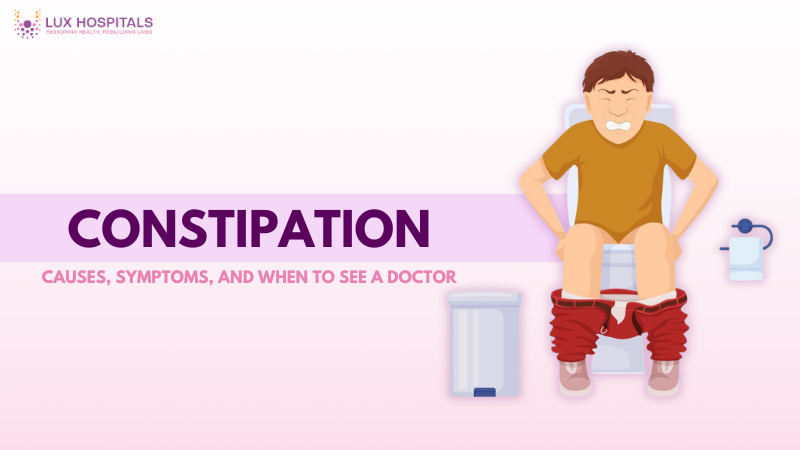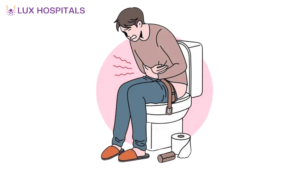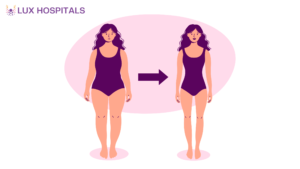Constipation: Causes, Symptoms, and When to See a Doctor

A common digestive issue many people have at some point in their lives is constipation. It frequently disturbs daily routines and has an impact on general well-being. It can be annoying as well as uncomfortable. Practical steps to prevent and manage constipation before it becomes a chronic issue. It affects people of all ages and is especially common among older adults, pregnant women, and individuals with sedentary lifestyles. While occasional constipation is usually harmless, chronic or severe cases may signal underlying medical conditions that require attention.
What is Constipation?
Constipation is having infrequent bowel movements—usually fewer than three per week—or passing hard, dry stools that are difficult to eliminate. It can be an occasional problem caused by lifestyle or dietary changes or become chronic, lasting for weeks or longer. Chronic constipation often indicates an underlying issue that needs medical evaluation or long-term management. In severe cases, people may experience a complete inability to pass stool, known as fecal impaction, which can require emergency intervention.
Causes of Constipation
Constipation can have a wide range of reasons, many of which can manifest at the same time:
1. Low-Fibre Diet
Slow-moving stools may result from a diet deficient in foods high in fiber, such as fruits, vegetables, and whole grains. Fiber facilitates simpler passage through the intestines by adding weight to the feces. A delay in waste movement caused by insufficient fiber exacerbates constipation.
2. Dehydration
Fluids help soften stools and support smooth bowel movement. When the body is dehydrated, the colon absorbs more water from the waste, making stools dry and hard. This is a prevalent cause of constipation, especially in older adults.
3. Lack of Physical Activity
Exercise helps stimulate intestinal muscles, promoting regular bowel movements. A sedentary lifestyle reduces bowel activity, especially in bedridden or inactive people, who are more prone to constipation as a result.
4. Medications
Many over-the-counter and prescription medications can cause constipation as a side effect. These include opioids, antidepressants, iron supplements, calcium channel blockers, and antacids that contain aluminum or calcium. Always review medications with your doctor if you suspect they may be contributing to your bowel issues.
5. Hormonal or Neurological Disorders
Constipation can result from medical conditions that impact the digestive system, such as diabetes, hypothyroidism, Parkinson’s disease, and multiple sclerosis. These conditions disrupt hormone balance or nerve signaling, slowing down bowel movements. In many cases, symptoms improve when the underlying ailment is treated.
6. Psychological Factors
Intestinal motility can be slowed by stress, anxiety, and depression, which can break the brain-gut connection. Emotional disturbances that change your food habits and activities, and the need to use the restroom, might exacerbate constipation.
Symptoms of Constipation
Recognizing the symptoms of constipation early can help in its effective management: Less than three bowel motions each week are considered infrequent. It is a primary sign.
- Hard or lumpy stools: Are difficult to pass and may cause pain.
- Straining: Feeling the need to push hard to pass stools is common.
- Incomplete evacuation: A sensation that the bowels aren’t fully emptied, even after a movement.
- Abdominal bloating or pain: Discomfort from gas buildup or distended intestines is often present.
- Rectal blockage: Some individuals feel a physical blockage prevents stool passage.
When these symptoms persist, they may severely impact your quality of life and require targeted treatment.
When to See a Doctor?
While occasional constipation is common and usually harmless, certain red flags require medical attention:
- Symptoms lasting longer than three weeks despite home remedies.
- Rectal hemorrhage or blood in the stool may indicate infrequent bowel motions (fewer than three per week), hemorrhoids, or more serious conditions like colorectal cancer.
- Unexplained weight loss, fatigue, or persistent abdominal pain.
- Changes in bowel habits in people over 50 could signal colorectal cancer or other diseases.
- Dependence on laxatives: Using laxatives frequently can lead to worsening bowel function over time.
A physician can do a physical examination and recommend blood tests, imaging, or a colonoscopy to determine the cause and prescribe treatment.
Conclusion
Constipation may ruin your day, make you uncomfortable, and even be a sign of more serious health problems if you don’t seek assistance. Understanding its causes, such as poor diet, medications, or underlying illnesses, and recognizing key symptoms like bloating and straining can help you respond early. If lifestyle changes don’t improve your symptoms or if you notice alarming signs, don’t hesitate to seek medical advice. Most cases of constipation can be effectively managed or prevented by staying hydrated, eating high-fiber foods, being physically active, and managing stress. Always listen to your body and consult a healthcare provider when necessary.
Frequently Asked Questions
A low-fiber diet, dehydration, lack of exercise, and certain medications frequently cause constipation. Other contributors may consist of medical conditions like diabetes and thyroid disorders. Emotional stress and ignoring the urge to go can also worsen it.
To naturally prevent constipation, eat a fiber-rich diet (fruits, vegetables, whole grains), drink plenty of water, and exercise regularly. Establishing a daily bathroom routine can also help regulate bowel movements. Avoid alcohol and coffee, as these might cause the body to become dehydrated and slow digestion.
Seek help if constipation lasts more than three weeks, causes severe pain, is accompanied by blood in the stool, or causes unexplained weight loss. These symptoms may point to a more serious health problem. Early medical evaluation ensures timely diagnosis and treatment.
High-fiber foods such as prunes, flaxseeds, bran cereal, and leafy greens can help relieve constipation. Hydrating fruits like watermelon and oranges also support smoother digestion. Drinking warm fluids in the morning may stimulate bowel activity.
Anal fissures, hemorrhoids, and other issues can result from persistent constipation. Or fecal impaction. It may also signal an underlying gastrointestinal or neurological disorder. In order to control symptoms and avoid long-term harm, prompt diagnosis is crucial.





















